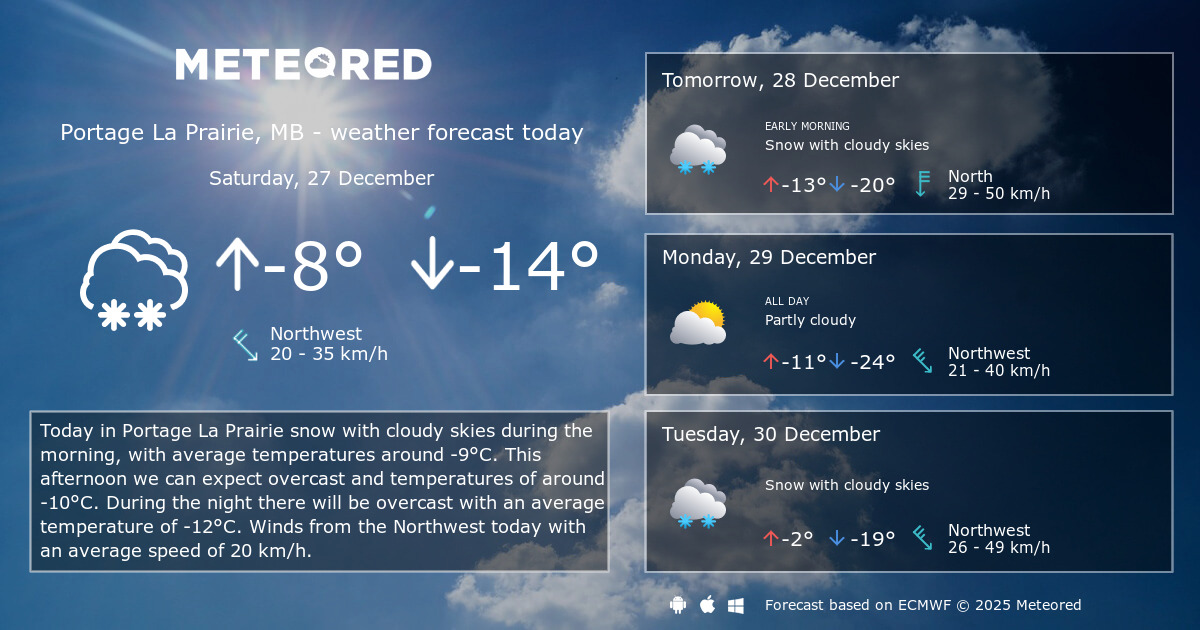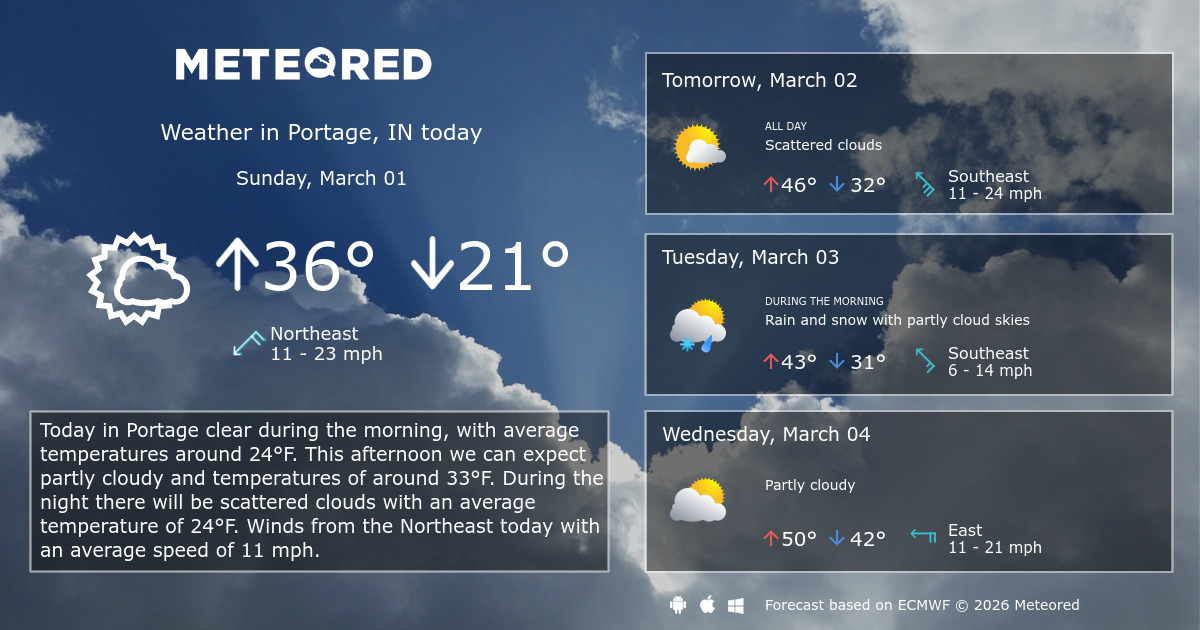Portage Weather Conditions

Portage weather – Portage, located in the midwestern United States, experiences a humid continental climate characterized by warm, humid summers and cold, snowy winters. The city’s weather patterns are influenced by its proximity to Lake Michigan, which moderates temperatures and contributes to higher humidity levels.
Throughout the year, Portage’s average temperature ranges from 26°F (-3°C) in January to 77°F (25°C) in July. Precipitation is evenly distributed throughout the year, with an average annual rainfall of 35 inches (89 cm) and snowfall of 50 inches (127 cm).
Seasonal Variations
Spring in Portage is typically mild and wet, with temperatures gradually rising from March to May. Precipitation levels increase during this season, with frequent rainfall and occasional thunderstorms.
Summer in Portage is characterized by warm, humid weather. Temperatures often reach into the 80s and 90s (27°C – 32°C), with high humidity levels making it feel even warmer. Thunderstorms are common during the summer months, sometimes accompanied by heavy rainfall and lightning.
Autumn in Portage brings cooler temperatures and decreasing humidity. The leaves of deciduous trees turn vibrant shades of red, orange, and yellow, creating a picturesque landscape. Precipitation levels are moderate during this season, with a mix of rain and snow as the weather transitions into winter.
Winter in Portage is cold and snowy. Temperatures can drop below freezing for extended periods, with frequent snowfall and icy conditions. Lake-effect snow can lead to heavy snowfall in the area, especially during the months of December and January.
Extreme Weather Events
Portage is occasionally affected by extreme weather events, such as tornadoes, hailstorms, and flooding. Tornadoes can occur during the spring and summer months, while hailstorms are most common in the summer. Flooding can occur during periods of heavy rainfall, especially in low-lying areas.
Impact of Weather on Portage Activities

Weather conditions play a crucial role in shaping outdoor activities and events in Portage. From hiking to biking, boating to fishing, the weather can significantly influence the enjoyment, safety, and overall experience of these popular pastimes.
During the summer months, warm and sunny weather encourages residents and visitors alike to engage in outdoor recreation. Hiking trails become bustling with hikers admiring the scenic beauty of the surrounding wilderness. Cyclists take advantage of the paved bike paths, enjoying the fresh air and picturesque views. The calm waters of the Portage Lakes invite boaters to explore the tranquil coves and hidden inlets.
Hiking
Weather conditions can greatly impact the safety and enjoyment of hiking in Portage. Extreme heat or cold can pose health risks to hikers, while heavy rain or snow can make trails impassable or dangerous. During the summer, hikers should be aware of the risk of heat exhaustion and dehydration, especially on longer trails. Proper hydration, sunscreen, and appropriate clothing are essential for a safe and enjoyable hiking experience.
Biking
Weather conditions can also affect the safety and enjoyment of biking in Portage. Rain or snow can make roads slippery and hazardous, while strong winds can make it difficult to control a bicycle. Cyclists should be aware of the weather forecast and adjust their plans accordingly. If the weather is inclement, it is best to postpone biking activities until conditions improve.
Boating
Weather conditions can have a significant impact on boating activities in Portage. High winds and rough waters can make boating dangerous, especially for small boats. Boaters should always check the weather forecast before heading out on the water and be prepared to adjust their plans if necessary. In the event of severe weather, it is best to stay off the water altogether.
Weather Forecasting and Preparedness

Staying informed about weather conditions and preparing for potential hazards is crucial for the safety and well-being of Portage residents and visitors. Fortunately, several weather forecasting services and resources are available to help you stay ahead of the weather.
The National Weather Service (NWS) provides detailed weather forecasts, warnings, and advisories for Portage and the surrounding area. You can access NWS information through their website, mobile app, or social media channels.
Local Weather Stations
In addition to the NWS, several local weather stations provide real-time weather data and forecasts for Portage. These stations are often operated by local universities, businesses, or community organizations. By monitoring local weather stations, you can get a better understanding of the weather conditions in your immediate area.
Weather Apps, Portage weather
There are numerous weather apps available for smartphones and tablets. These apps provide convenient access to weather forecasts, radar maps, and severe weather alerts. Some popular weather apps include AccuWeather, The Weather Channel, and Weather Underground.
Importance of Staying Informed
Staying informed about weather conditions is essential for several reasons. First, it allows you to plan your activities accordingly. If severe weather is expected, you can adjust your plans to avoid potential hazards. Second, being aware of weather conditions can help you protect your property. By taking precautions such as securing loose objects or bringing in outdoor furniture, you can minimize the risk of damage during storms.
Tips for Staying Safe During Severe Weather Events
In the event of severe weather, it is important to take steps to stay safe. Here are some tips:
- Stay indoors and away from windows.
- If you are outside, seek shelter in a sturdy building or vehicle.
- Avoid driving through flooded areas.
- Be aware of downed power lines and other hazards.
- Listen to local news and weather reports for updates on the storm.
By following these tips, you can help ensure your safety during severe weather events.